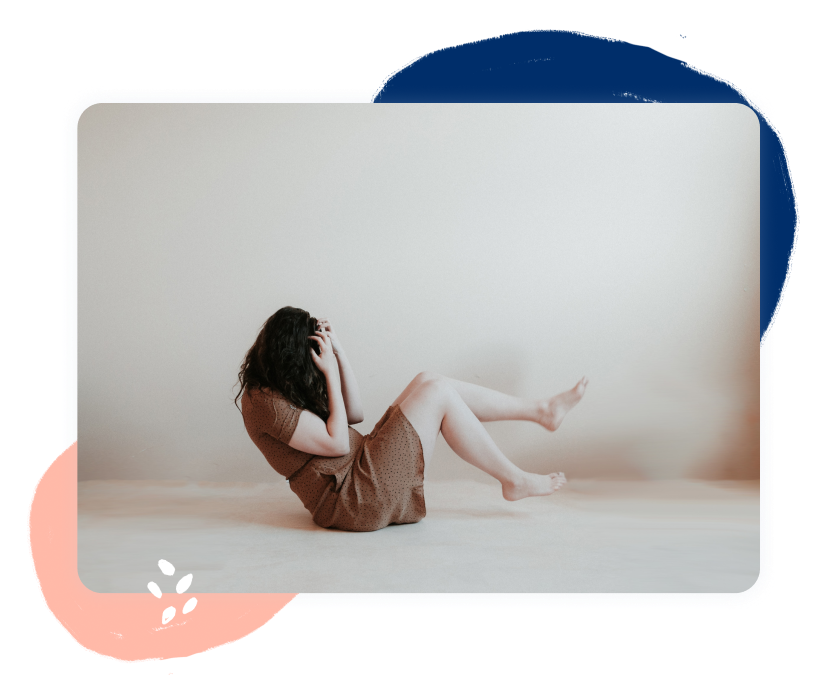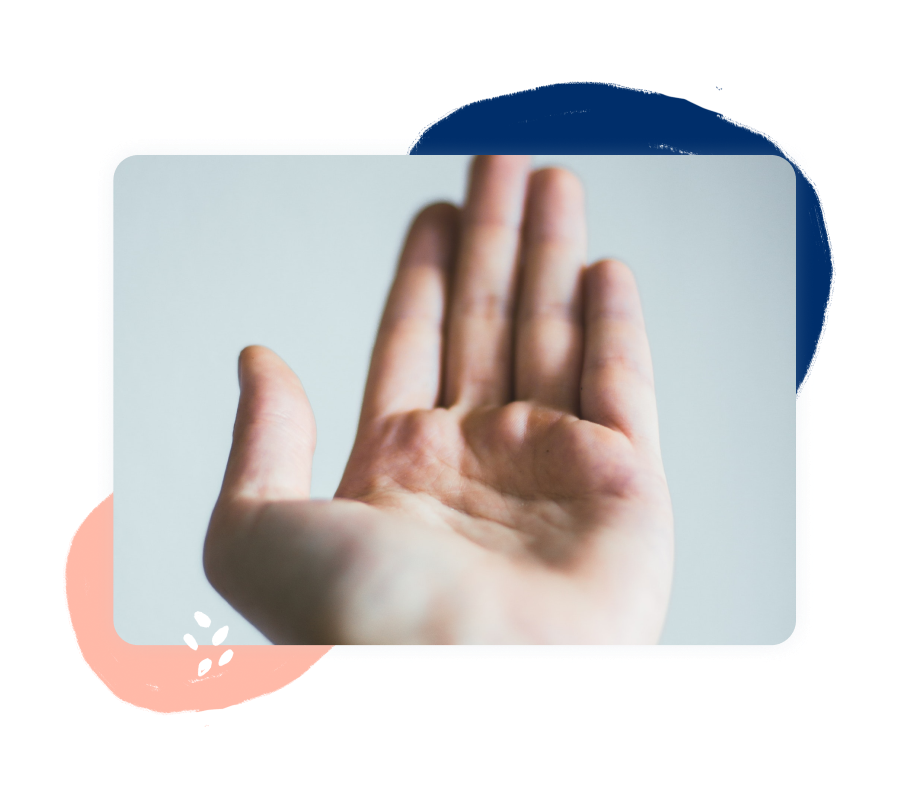Online
Therapy for Anxiety

What is anxiety?
Anxiety is a natural defense mechanism we have as humans. The problem arises when it’s triggered without a real threat and it incapacitates us in some way.
Therapy focused on alleviating anxiety is one of the most common clinical solutions in modern society. Anxiety is kind of an alarm that our own body triggers, and manifests itself in different ways, both physically and emotionally. The signal leads us to react to everyday or habitual situations as if we were facing a dangerous or extreme circumstance. The levels of intensity can vary and it usually appears even in situations that did not suppose a problem for us in the past. We all experience anxiety at certain points in our lives.
The biggest problem arises when anxiety is extended over time and we feel blocked, insecure and unable to cope with everyday situations, which negatively affects the way we build our world. ifeel allows you to have a specialized therapist at your fingertips at all times. Through your private chat you will be able to express your emotions and concerns immediately, comfortably and confidentially. You will be able to message your therapist as much as you like, whenever you need to and you will receive answers throughout the day.
Our psychologists will offer you guidelines and tools that will help you manage anxiety and alleviate its symptoms, change habits and dynamics so that you can face your problems and live your day-to-day in the healthiest way possible.
Causes of anxiety
The causes of anxiety can vary and depend on the genetic makeup and personality of each person, as well as their life and family history.
Some illnesses or medical problems can even be related to the way they come about. Here we are talking about the role of biological and genetic factors, as well as learning processes that we develop from infancy to maturity. These can be relational patterns or coping mechanisms when dealing with stress, lifestyle, environmental factors (context and support networks…), etc. Dealing with traumatic, stressful situations or significant changes can have a big impact. Drug consumption or even one’s own lifestyle can also be sufficient reasons to develop an anxiety problem. In such cases, it is advisable to start therapy with a specialized professional.

How can online therapy help me with my anxiety?
Multiple studies show that therapy is a great tool to treat anxiety. Therapy helps slow down and alleviate the symptoms, and teaches us to deal with stressful situations or discomforts in a different way than usual. Therapy helps train new thought patterns that reduce and deconstruct the negative or destructive thoughts that incapacitate us.
We learn emotional management and how to identify what we feel at each moment in order to discover new ways of expressing ourselves or resolving conflict. All this generates changes in our daily routine and the dynamics we have with people that surround us, all while helping us find tranquillity and a balance to prevent fear from taking over our day-to-day.
What types of anxiety are there?
Anxiety can lead us to experience our day-to-day in a fearful way, which ends up affecting different areas of our lives.
It can manifest itself in many ways, and it is not always associated with a specific disorder. Some of the most common clinical conditions are: generalized anxiety disorder, obsessive-compulsive disorder, social phobia, specific phobias or agoraphobias, as well as post-traumatic stress disorder.
What are the main symptoms of anxiety?
You may be suffering from anxiety and not even be aware of it. It is more common than it might seem and can be confused with other emotional states. Detecting its presence helps us understand and face the problem quickly. The first thing you should know is that you can experience physiological, cognitive or emotional symptoms. Here are some examples:
- Tachycardia, elevated heart rate, shortness of breath, excessive sweating, muscle tension, dizziness, nausea or vomiting, gastrointestinal problems, headaches, trembles.
- Nervousness, extreme restlessness or impatience, panic or excessive fear of everyday situations, sadness, feeling of blockage, loss of control or anguish.
- Irritability, difficulty concentrating or sleeping, constant worry, fatigue due to lack of rest, fear of worst-case scenarios, recurring or self-disabling negative thoughts.
- Anxiety is also related to changes in appetite or sleep: not being able to eat, compulsive eating or overeating; insomnia, waking up in the middle of the night, waking up with the feeling of not being well rested.
You may need professional help if:
- You’ve become more nervous than usual in day-to-day situations
- You feel more emotionally blocked than usual
- You have alterations in your eating habits: you overeat or have lost your appetite.
- You find it more difficult than usual to fall asleep.
We think that these articles may interest you
If you are in danger or in an emergency situation, do not use this web.
Call 112 for immediate help.


